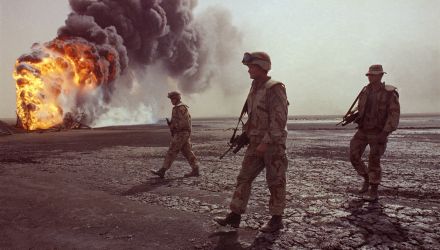BEIRUT -- The first anniversary of Barack Obama’s presidency is a good time to review his performance in the Middle East, and the Middle East’s performance vis-à-vis the United States. The exercise is depressing, but useful, especially on the Arab-Israeli conflict that remains the central destabilizing factor in the wider region. It is unfair only to measure Obama’s performance, and ignore the Israeli and Arab principal players in this prolonged drama of stalemate and stagnation.
Obama started his term with a flurry of profound gestures and a few more limited moves: reaching out to and sitting at the table with Iran, resuming high-level contacts with Syria, appointing George Mitchell as his peace-making envoy, calling for an Israeli settlement freeze, seeking Arab gestures of acceptance of Israel, asking Israel to allow humanitarian supplies to flow into Gaza, speaking out on US-Islamic ties in Ankara and Cairo, and, once a week between January and July, hugging every Muslim in sight.
These gestures set the tone for a presidency that held out great promise for new activism, ideas and advances in Arab-Israeli diplomacy. Most of them have fizzled out to date. Clearly, Obama gave urgency to his Arab-Israeli moves, but not priority. He focused more on issues of greater immediate importance, such as Iraq, Afghanistan, Iran, North Korea, the economy, health care reform, and relations with Russia and China. His largely inexperienced team also made some amateurish moves, such as equating an Israeli settlement freeze with calls on the Arabs to make gestures of acceptance towards Israel. The United States also appeared not to use any serious diplomatic muscle in the process, other than facial muscles in its public rhetoric.
We still have no idea how Obama hopes to solve this conflict because he has not articulated the US view on such issues as refugees, the settlements’ ultimate status, and Jerusalem. He has not indicated how far he is prepared to press the Israelis or Arabs. He may not do any of this in the coming year, when the US mid-term Congressional election usually freezes any serious work on Israeli matters due to fears by politicians of losing their seats if the pro-Israel lobby decides to oppose and unseat them.
Obama’s Arab-Israeli policy remains an unhurried work in progress, though this week’s Middle East trips by Mitchell and National Security Adviser Jim Jones may signal early steps in what might be Phase Two of Obama’s approach to resolving the Arab-Israeli conflict by re-launching direct negotiations.
In the face of this erratic track record by Obama, what have the Arabs and Israelis done in the past year, other than oppose, delay, irritate, and obstruct him? If Obama gets a B for effort and a D for achievement, the Arabs and Israel probably deserve an F for their collective failure to contribute meaningfully to resolving their own conflict.
The Israelis not only refused to comply with the American demand to freeze settlements, they also pursued several other destructive, predatory or illegal and provocative actions: They expanded some settlements, house demolitions, building permit approvals and land confiscations in the West Bank, Arab East Jerusalem and the Syrian Golan Heights; they continued to steal Arab water above and below ground; they maintained a near-starvation siege on the Gaza Strip and kept killing and jailing Gaza and West Bank Palestinians at will; they continued their provocative over-flights in Lebanon; and, they maintained the Apartheid-like controls over Palestinians living in the lands occupied in 1967. All in all, a pretty normal year for Israel.
The Arabs, for their part, have been on diplomatic leave of absence this year, perhaps still celebrating the Obama victory and anticipating that the young American president will save them. I cannot think of a single meaningful or constructive diplomatic move by the Arab world since the Obama election -- not on Israel and Palestine, not on terrorism, not on Iran, not on weapons of mass destruction proliferation, not on Iraq, not on Sudan, not on Somalia, not on Yemen, not on Algeria, not on democratization and human rights, and not on Lebanon (well, perhaps we can celebrate that the Syrians and Saudis started talking again).
The total absence of serious Arab diplomacy or initiatives is one of the profound shortcomings of our contemporary political systems, in which regimes are largely immobilized on the international scene because of their almost total preoccupation with maintaining incumbency at home. There is profound sadness in the mass political passivity of the Arab region and its people that once, long ago, displayed energy, fostered creativity, took initiatives, and engaged the world to make it a better place.
A year after the start of the era of Obama, the Americans still come and go and speak of their dreams for us, the Israelis still act like criminals, and the Arabs insist on remaining invisible people.
Khouri, Rami. “Low Marks for Obama’s Year One.” Agence Global, January 20, 2010





